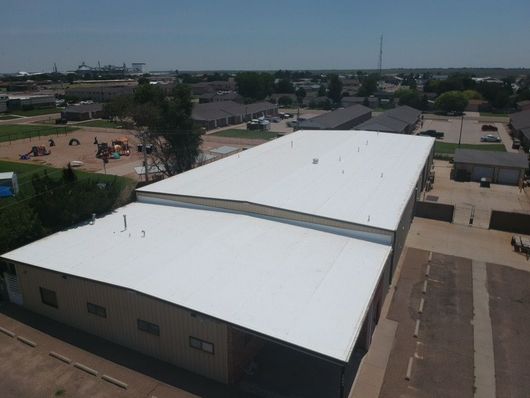If you're in the market for a new roof, metal roofing is one option you should consider. Offering unmatched durability and excellent energy efficiency, metal roofing is an ideal solution for both homes and businesses. In this article, we’ll dive into why metal roofing stands out as the top choice for durability and energy savings.
Benefits of Metal Roofing for Commercial and Residential Properties
Metal roofing comes with several advantages for both residential and commercial properties. A major benefit is its durability. Metal roofs endure harsh weather elements like snow, heavy rain, hail, and high winds. Unlike asphalt shingles, which deteriorate over time, metal roofs resist cracking, warping, and corrosion, offering a lasting investment for your property.
Another great benefit is the low maintenance required by metal roofing. It’s built to last for decades—sometimes up to 50 years or longer—and requires fewer repairs than other roofing materials. This longevity makes metal roofs a solid investment, saving you money on long-term maintenance.
How Metal Roofing Contributes to Energy Savings
A major advantage of metal roofing is its energy efficiency. The reflective nature of metal helps to keep buildings cooler in the summer by reflecting sunlight. This reduces the reliance on air conditioning, which lowers your energy bills. In some cases, metal roofs can reduce cooling costs by up to 25%, particularly in warmer climates.
In addition, metal roofs offer great insulation. They keep the warmth in during colder months and block heat during the summer, helping regulate indoor temperatures. This reduction in heating and cooling needs leads to long-term savings on energy bills.
Steel vs. Aluminum: Which Metal is Right for Your Roof?
When selecting a metal roof, the two most common materials are steel and aluminum. Each has its advantages, depending on your needs and the environment in which the roof will be installed.
Steel Roofing
Steel is known for its strength and affordability. It’s a popular choice for commercial buildings due to its robustness and ability to withstand harsh weather conditions. Steel is also less prone to denting, making it a good option for areas with frequent hailstorms. However, steel can be susceptible to rust if not properly treated or maintained, so it’s important to ensure it has a protective coating.
Aluminum Roofing
Aluminum roofing, on the other hand, is lightweight and resistant to corrosion, making it an ideal choice for coastal areas or regions with high humidity. Aluminum is also more energy-efficient due to its natural reflective properties, which help reduce heat absorption. Though it tends to be more expensive than steel, aluminum roofing offers superior longevity and corrosion resistance, making it a worthy investment in the long run.
The Lifespan and Long-Term Value of Metal Roofs
While the initial cost of metal roofing may be higher than traditional materials like asphalt shingles, the long-term value is unmatched. Metal roofs can last 40-70 years, depending on the material, far outlasting other types of roofing. Over time, the energy savings, low maintenance costs, and the durability of a metal roof will more than make up for the initial investment.
Metal roofs can also enhance the value of your property. They are often associated with durability and energy efficiency, making your property more attractive to potential buyers.
Conclusion: Why Metal Roofing Should Be Your Top Choice
To sum up, metal roofing offers unmatched durability, energy efficiency, and long-term value for both homes and businesses. With its ability to outperform other roofing materials, choosing a metal roof will deliver long-term benefits and peace of mind.
Thinking about installing a metal roof? Contact us today for a consultation, and we'll assist you in choosing the best roofing system to meet your needs!
#MetalRoofing #EnergyEfficientRoofing #DurableRoofing #SteelRoofing #AluminumRoofing #RoofInstallation #RoofingMaterials #LongTermValue
